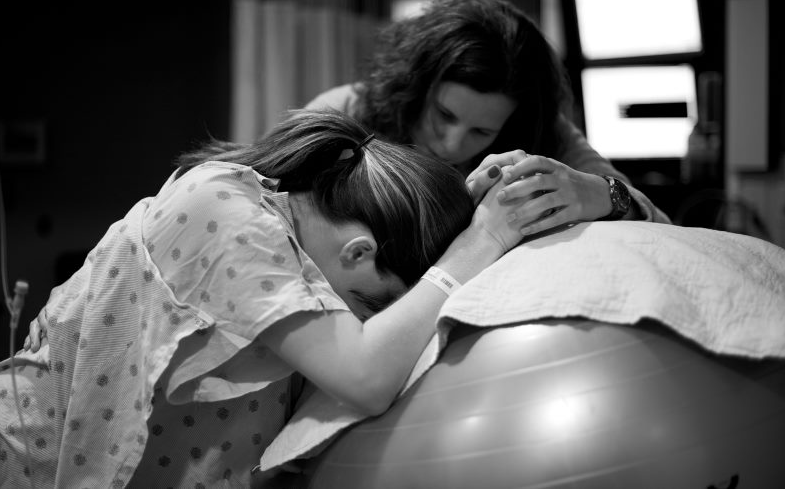
The largest doula association, DONA International has seen a growth in membership from 750 in 1994 to more than 6,000 in 2006. Research from 17 published randomized trials including the Journal of American Medical Association has shown that women who have doulas with them during their entire delivery cope better during childbirth compared with women who don’t have assistance. A recent Cochrane Review, Continuous Support for Women During Childbirth, found that “continuous labor support reduces a woman’s likelihood of having pain medication, increases her satisfaction and chances for ‘spontaneous’ birth, and has no known risks.” The women have fewer incidents of C-sections, they may be able to avoid epidurals or other pain medicines, they spend less time in labor and they have lower rates of postpartum depression. The differences did not hold for women who had doulas that left for an hour or more during the labor.
“She was able to do things for me that I would have forgotten to do if I was there alone,” says Morris on why she chose to hire Rowland for her second pregnancy. “The doctor is in and out. And the nursing staff changes their shifts. [Rowland] was there from the beginning to the end.”
Childbirth can be a scary experience for new parents. Having a doula can provide physical and emotional support before, during and immediately after childbirth.
Dr. Marshall Klaus of the University of California San Francisco says a childbirth assistant– especially one who uses firm touch or massage– helps the laboring woman release oxytocin. Oxytocin is a hormone secreted by the pituitary gland that reduces stress and pain, and acts like a calming drug for women in labor.
While the assistance of doula has benefits, it can have a steep price tag. Standard doula services include meeting with the family before the birth and after, and being on call for the labor regardless of the hour. Parents can attend a “meet the doula night” to interview and get to know a doula so that they can pick someone they feel comfortable with. Doulas often are involved in coaching months before the delivery day, and postpartum doula services are also available. In 1996, health advocates in Chicago began working to make doula services accessible to low-income mothers and teen moms, and they trained women from these groups to serve as doulas for one another. The program provided thousands of people with extended doula services, and program organizers decided to replicate the project in other cities, including Atlanta, Albuquerque, Minneapolis, Phoenix, Denver, Indianapolis, Seattle and Bloomington. More programs are also under development in New York, San Francisco, Berkeley, Fort Worth/Dallas, Baltimore, Washington, DC, and Bethel, Alaska. These programs offer free or reduced cost doula services, and often train women to serve as doulas in their own local communities.
Relevant web links
- New Cochrane Review on Effects of Continuous Labor Support – http://www.maternitywise.org/prof/laborsupport/index.html
- The First National U.S. Survey of Women’s Childbearing Experiences – http://www.maternitywise.org/listeningtomothers/index.html
- DONA INTERNATIONAL and DONA doula certification – http://dona.org/ (888)788-DONA
- Chicago Health Connection Doula Model (community-based doula model): http://www.chicagohealthconnection.org/our_work/doula/about.php http://www.chicagohealthconnection.org/doula/nati_repl.htm
- A Doula Story (the film): http://www.activevoice.net/doula.html
- Alternative Doula Certification programs: International Childbirth Education Association – http://www.icea.org/doula2.htm
Relevant book:
The Doula Book: How a Trained Labor Companion Can Help you Have a Shorter, Easier, and Healthier Birth. By Marshall H. Klaus, Phyllis H. Klaus and John H. Kennell.

